Table of Contents
TL; DR
Tired of marketing campaigns that don’t deliver? A data ROI tool provides actionable insights to boost your returns.
While most tools offer you the data you need, a marketing ROI tool helps you leverage this data and gives you unparalleled returns on your investment (ROI). Invest in a data ROI tool that helps you discard the marketing efforts that don’t work and identify and scale efforts that drive results so you can multiply your revenue.
Read on to learn about the top data ROI tools for marketing and sales in 2024.
What is a data ROI tool?
Data ROI tools help you measure the return on investment (ROI) of your data and analytics initiatives. In marketing, this could be your data related to SEM, ads, SEO, and more.
ROI tools share insights into how marketing activities impact your bottom line, enabling you to gauge your digital ROI. These tools help you identify which channels and campaigns influence sales and revenue the most. They also share insight into the campaigns that are not working for you, thus helping you improve or discontinue underperforming campaigns.
Why should you track the ROI of your data
Whether you are a bootstrapped company or a VC-funded startup, tracking return on investment (ROI) is crucial.
Your board members are looking for results. So is your business head.
Generating leads is not the same as getting an ROI. So, while 57% of marketers use leads to measure marketing success, it is not the most reliable success metric.
A good data ROI tool helps you identify SQLs and gives you actionable information on the revenue outcomes of your marketing efforts. This information helps you identify those marketing strategies that have the best business impact and empowers you to optimize marketing performance.
What to look for in a data ROI tracking tool?
Choosing the Top roi improvement tools for marketers has become a crucial business requirement. Before you invest, identify your unique business requirements and look for a tool that will yield long-term rewards.
Here are some features you should consider before signing up for a data ROI tool for marketing:
#1 Ease of use
Look for an easy-to-use solution that allows users to access, extract, and exchange data with each other. Preferably, pick one that can be understood in one go. We like to endorse tools that come with a great UI/UX as it makes it easier to work on the tool.
#2 Integration with your tools
Choose a tool that can easily integrate with your current Martech stack so it gives a holistic view of your customer journey. When you integrate your data on one platform, you can leverage the touchpoints that had the greatest impact on ROI and make informed decisions about where to use your marketing budget.
#3 Ability to track user journey
Pick a tool that helps you seamlessly coordinate your online and offline touchpoints, especially if you’re using offline mediums to convert leads into paying customers. Doing this will make it easier to leverage sales data.
#4 Cost effectiveness
Since most app solution providers charge extra for integrations, extra usage, and additional accounts, we recommend looking for a tool that does not include hidden fees.
Top 8 data ROI tools for marketing and sales in 2026
#1 5X
5X is a full-stack platform and an effective data ROI tool for both marketing and sales. The tool offers 500+ pre-built connectors and easily integrates with your martech stack so you can meet your goals.
.avif)
5X is a full-stack platform and an effective data ROI tool for both marketing and sales. The tool offers 500+ pre-built connectors and easily integrates with your martech stack so you can meet your goals.
The beauty of using the 5X data ROI tool is that your data teams can focus their 100% attention on getting ROI instead of having to refer to different tools for marketing and sales data.
Key features:
- Data ingestion: Powered by Fivetran and Gravity, 5X offers 500+ pre-built connectors. Custom connectors can be built quickly without code, so you can collate your marketing and sales information from the data tools you use.
- One-stop data tool for all your marketing data: From HubSpot to Google Analytics to TikTok to Instagram to Google Ads to MailChimp to everything in between, 5X extracts data from the tools you use in one user-friendly dashboard. This helps you track the source of your leads, the deals you have closed, channel performance, and more.
Pros of using 5X:
- One dashboard and easy data integration with all your apps.
- Easy to use, and easier to understand. You get customer support.
- In-house data teams build the 5x app for you, so you don’t have to.
- It is the only data tool that supports custom integrations at zero additional cost, ensuring uninterrupted data movement across all your systems.
G2 Rating: 4.5/5
Pricing: Pay-as-you-go, no upfront costs
#2 Google Analytics
Google Analytics is a free marketing ROI tool that provides an overview of your website performance.
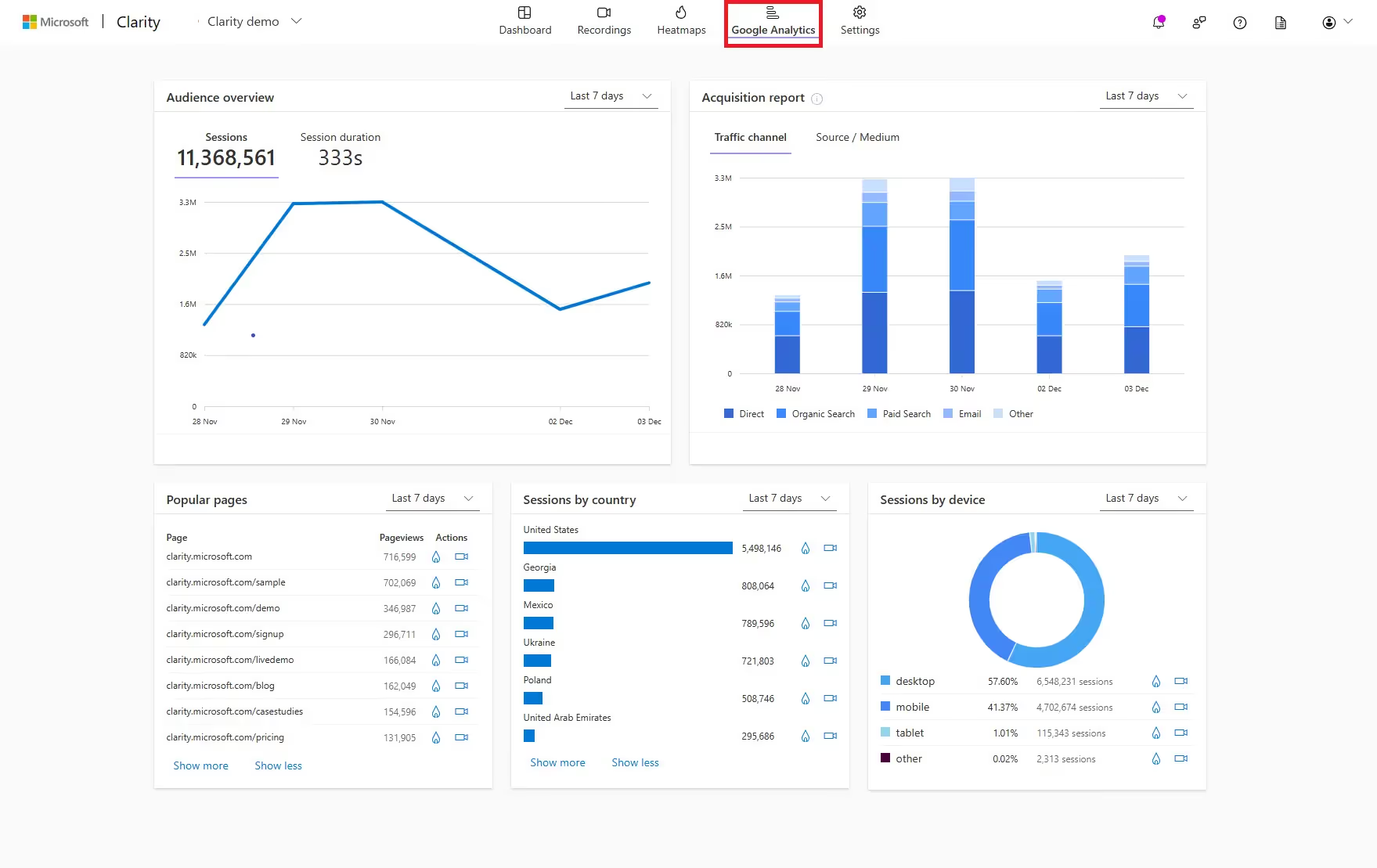
Google Analytics tracks how much traffic you get, where it comes from, and how they interact with your website. Using this data helps you understand if your website strategy is effective and you can take steps to improve site performance.
Key features:
- Real-time data tracking: Instantly monitor website traffic and user activity.
- Detailed reporting: Get user behavior, acquisition channels, and demographics insights.
- Milestone tracking: Measure clicks, downloads, etc.
- Goal setting: Tracks conversions and user journeys.
- Customizable dashboards: Visualize data using flexible widgets.
Pros of using Google Analytics:
- The tool is free so you can easily sign up for it.
- Easy to use and easier to set up.
- Shows you real-time traffic data.
- Manages multiple websites under the same account.
- Beginners can watch YouTube tutorials to learn how the tool works, no support team is needed.
Cons of using Google Analytics:
- Use of anonymous data.
- Not great for identifying specific user personas.
- Takes a long time to learn and fully understand all the reports and metrics.
G2 Rating: 4.5/5
Pricing: Free
#3 Cyfe
Cyfe offers an all-in-one business dashboard solution that integrates with tools like Salesforce, Xero, Quickbooks, and others, to give you a complete view of your marketing performance.
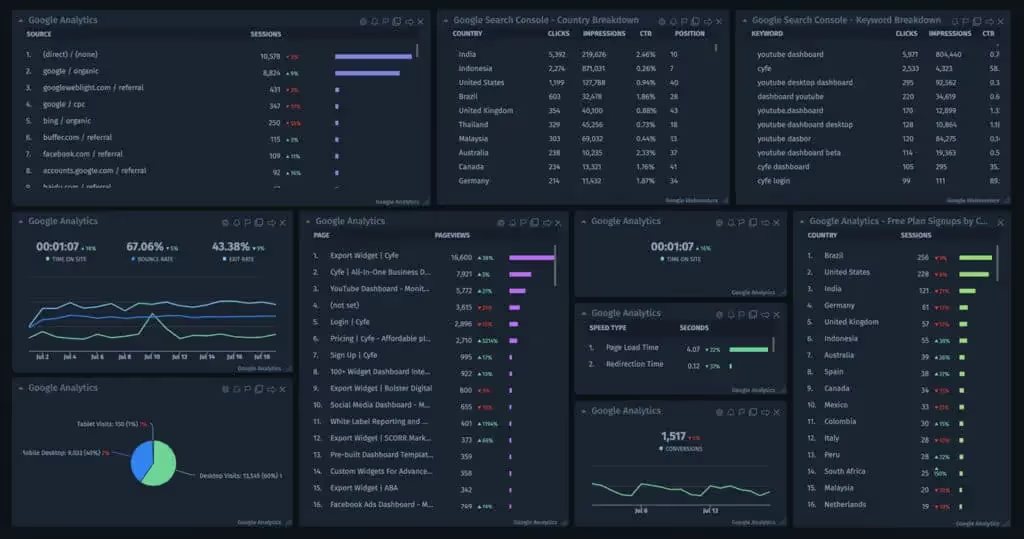
Using this tool, you can monitor your social media strategy, SEO content, email marketing, SEM, web analytics, and more.
Moreover, using Cyfe’s unique pre-built widgets, you can customize your dashboard without having to plug in all the metrics yourself. You can also choose what you want to monitor – once you do this, Cyfe will monitor those metrics and show them in your dashboard.
Key features:
- White-labeling: Customize reports and dashboards with your branding.
- All-in-one dashboard: Centralizes data from multiple platforms (marketing, sales, social media).
- Pre-built widgets: Easy integration with Google, Salesforce, and social media, etc.
- Historical data: Access past data for trend analysis.
Pros of Cyfe:
- Affordable pricing plans
- The tool’s pre-built widgets and reporting abilities
- Push API
- Import offline or proprietary data with custom widgets
- Real-time reports
- All-in-one white-label dashboards
- Easy to use and understand
- A lot of custom options
Cons of using Cyfe:
- Possibility of accidentally erasing your data
- A limited quantity of widgets
- Limited functionality
G2 Rating: 4.3/5
Pricing: Starts at $19/month
#4 Kissmetrics
Kissmetrics is an email marketing tool that identifies your best-performing channels for revenue generation. This tool tells you how much money you made from marketing, where your revenue is coming from and what campaigns have the highest lifetime value or lowest churn.
.avif)
It also allows you to track your page views, bounce rate, and time on site. Moreover, you can track the customer’s journey across different devices to understand how they interact with your website, what pages they visit, and which forms they have filled.
Key features:
- Customer journey tracking: Focuses on individual user behavior across multiple devices.
- Funnel reports: Visualizes conversion paths to improve optimization.
- Cohort analysis: Track user behavior over time for retention and churn insights.
- Revenue attribution: Links user actions to revenue for detailed ROI analysis.
Pros of using Kissmetrics:
- Easy dashboard, simple integrations
- Lets you segment your customers into cohorts and track website activity
- Testing/staging sandboxes
- Group contact lists
Cons of using Kissmetrics:
- Poor data retention policy
- UI can be confusing
- Limited features in the basic funnel report
- Pricing may be relatively higher compared to some other platforms
G2 Rating: 4.1/5
Pricing: Starts at $299/month (billed annually)
#5 Salesforce
Salesforce is one of the most widely used CRM platforms in the world. It gives you a comprehensive view of your sales performance, including metrics such as sales volume, conversion rates, and average deal size. With this information, you can identify gaps and improve your sales strategy.
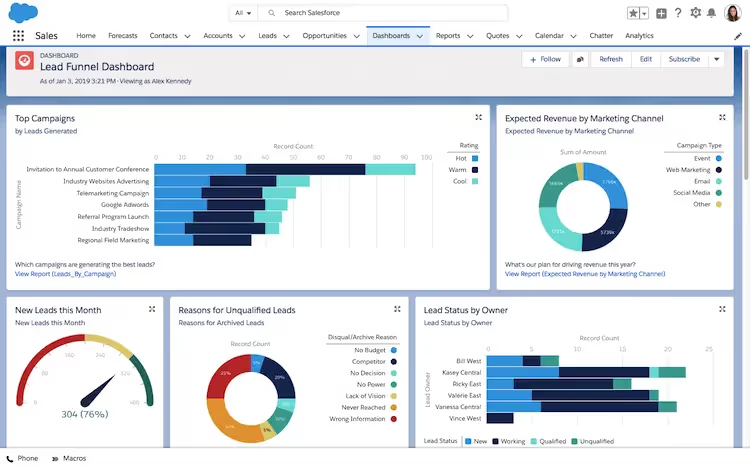
Using its lead management, opportunity management, and quote management tools, you can streamline your sales process. And using the historical data and current trends available in its forecasting tool, you can better allocate resources and manage inventory. You can improve customer experiences and nurture relationships using its customer service, support, and loyalty programs.
Key features:
- Comprehensive CRM: Manages customer data, sales, and communication.
- Customization: Flexible workflows and automation tailored to business needs.
- Sales automation: Generate, track and nurture leads.
Pros of using Salesforce:
- Seamless integration and easy to scale
- Highly customizable platform
- Salesforce offers mobile applications for iOS and Android devices
- Data security and compliance
Cons of using Salesforce:
- Costly
- Limited mobile app functionality
- Complex platform, making it difficult to use and optimize for your needs
- Data storage limitations
- Integration challenges
G2 Rating: 4.4/5
Cost: Starts at $165/month
#6 Uplead
Uplead is a B2B lead generation tool that helps companies build quality lists and gives them access to verified B2B contacts with direct email addresses. It provides marketing and sales teams with the high-quality data they need to market and sell more effectively.
.avif)
Key features:
- B2B contact database: Access millions of verified contacts and companies.
- Lead enrichment: Get lead emails, phone numbers, and social profiles.
- Real-time verification: Accurate and up-to-date contact information.
- Advanced search filters: Narrow down leads based on specific criteria (industry, location, etc.).
- CRM integration: Easily connect with popular CRM tools for easy lead management.
Pros of using this tool:
- 95% accuracy for B2B prospecting
- Free trial available for 7 days
Cons of using this tool:
- Limited integrations are available
- The best features are in the pro plan which is expensive
G2 Rating: 4.7/5
Cost: Starting at $99/ month
#7 HubSpot
HubSpot CRM provides data-driven insights that you can leverage to improve marketing, sales, and service operations, resulting in strong ROI for businesses. The tool simplifies lead generation, sales metrics tracking, and customer service efficiency.
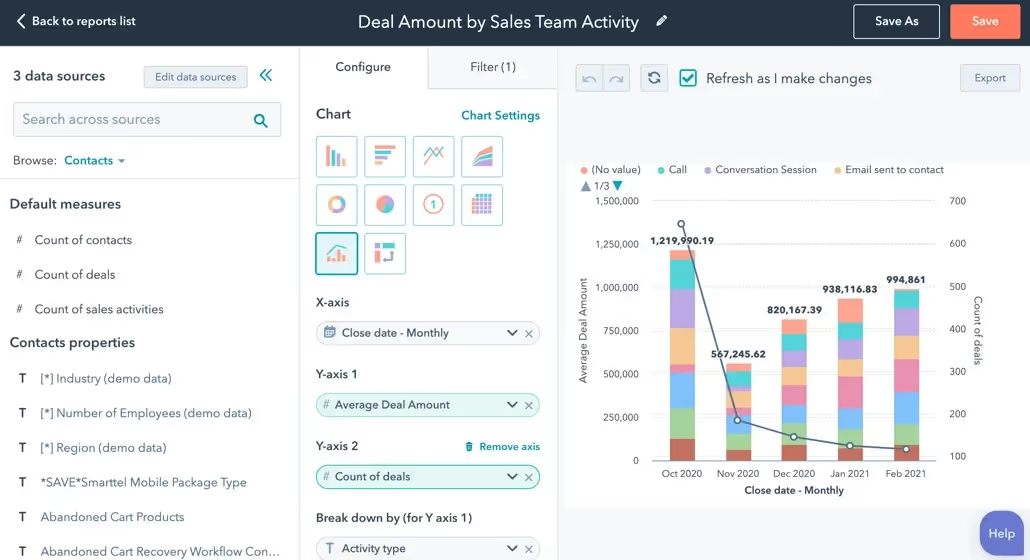
You can use its reporting tools to track the customer journey from initial contact to sales and better understand the direct impact of your marketing efforts on revenue growth.
Key features:
- All-in-one marketing platform: Combines CRM, marketing, sales, and customer service.
- Content management: Use its built-in CMS to create and manage websites.
- Lead nurturing: Automated email sequences and workflows to engage leads.
- Sales pipeline management: Track deal progress using visual sales funnels.
Pros of using this tool:
- Software is highly scalable.
- Powerful marketing and sales automation.
- Enables cost reduction: The cost savings associated with HubSpot's automation and efficiency translate into a lower cost per lead and a higher profit margin.
Cons of using this tool:
- Not too effective when you don’t use it as an all-in-one tool.
- Integrated CMS means that you will have to give up your current tools.
- It has annual contracts – no early termination.
- HubSpot onboarding service is both mandatory and expensive.
G2 Rating: 4.4/5
Cost: Starts at $800/month
#8 Clearbit
Clearbit is a sales intelligence platform that automatically updates sales records with verified company and contact data to provide better insights into prospects. It integrates with your go-to tools to provide the data you need where you need it most.
.avif)
Key features:
- Data enrichment: Gives you detailed information about contacts (company size, revenue, social profiles).
- Real-time API: Instant data access for customer insights and lead generation.
- Lead scoring: Automatically ranks leads based on custom criteria.
- Prospecting tool: Find potential customers using various filters (industry, role, etc.).
- CRM integration: Enriches data within your CRM to improve targeting and personalization.
Pros of using this tool:
- Comprehensive B2B Dataset
- Real-time buying intent signals
- Global coverage and language support
- One of the top-rated products for sales data enrichment
- Integrates with several tools including Salesforce, G Suite, Outlook, HubSpot, Marketo, Zapier, Segment, and Tray
Cons of using this tool:
- Data privacy is a concern
- Data availability for niche industries is limited
- Limited free plan
G2 Rating: 4.4/5
Cost: Undergoing acquisition by Hubspot. Pricing is not listed on the current website.
The next step: Invest in a marketing ROI tools
In today’s competitive landscape, relying on gut feeling or outdated metrics is not an option. And neither is wasting precious time collating marketing insights from multiple sources.
With tools like 5X, tracking and scaling your Data-Driven ROI becomes a walk in the park.
5X operates on the simple philosophy of simplifying data for you so you can meet your business goals. Instead of hiring data generalists, invest in 5X so you can access all your marketing data in one platform and make better decisions to transform your campaign efforts into impactful results.
Building a data platform doesn’t have to be hectic. Spending over four months and 20% dev time just to set up your data platform is ridiculous. Make 5X your data partner with faster setups, lower upfront costs, and 0% dev time. Let your data engineering team focus on actioning insights, not building infrastructure ;)
Book a free consultationHere are some next steps you can take:
- Want to see it in action? Request a free demo.
- Want more guidance on using Preset via 5X? Explore our Help Docs.
- Ready to consolidate your data pipeline? Chat with us now.

How retail leaders unlock hidden profits and 10% margins
Retailers are sitting on untapped profit opportunities—through pricing, inventory, and procurement. Find out how to uncover these hidden gains in our free webinar.
Save your spot








%201.svg)
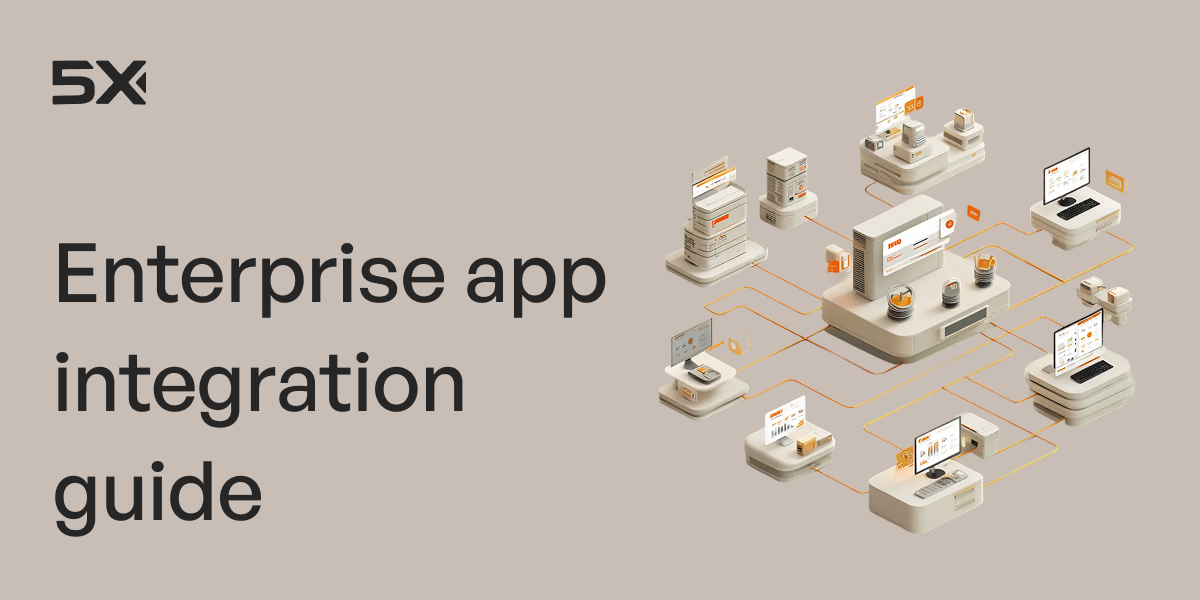
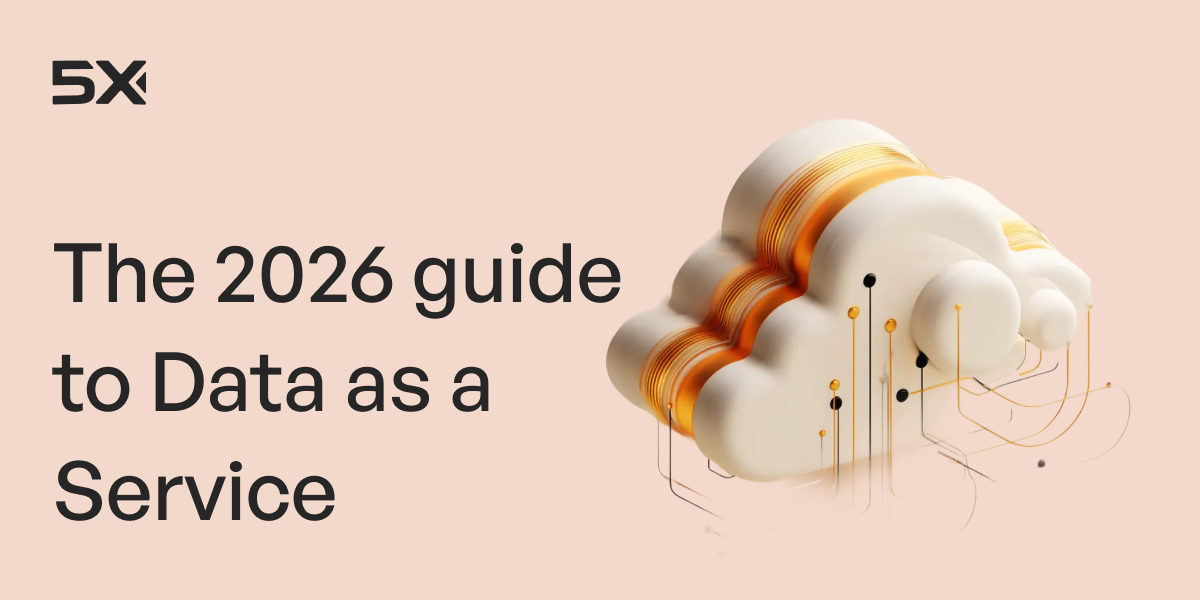
.png)






